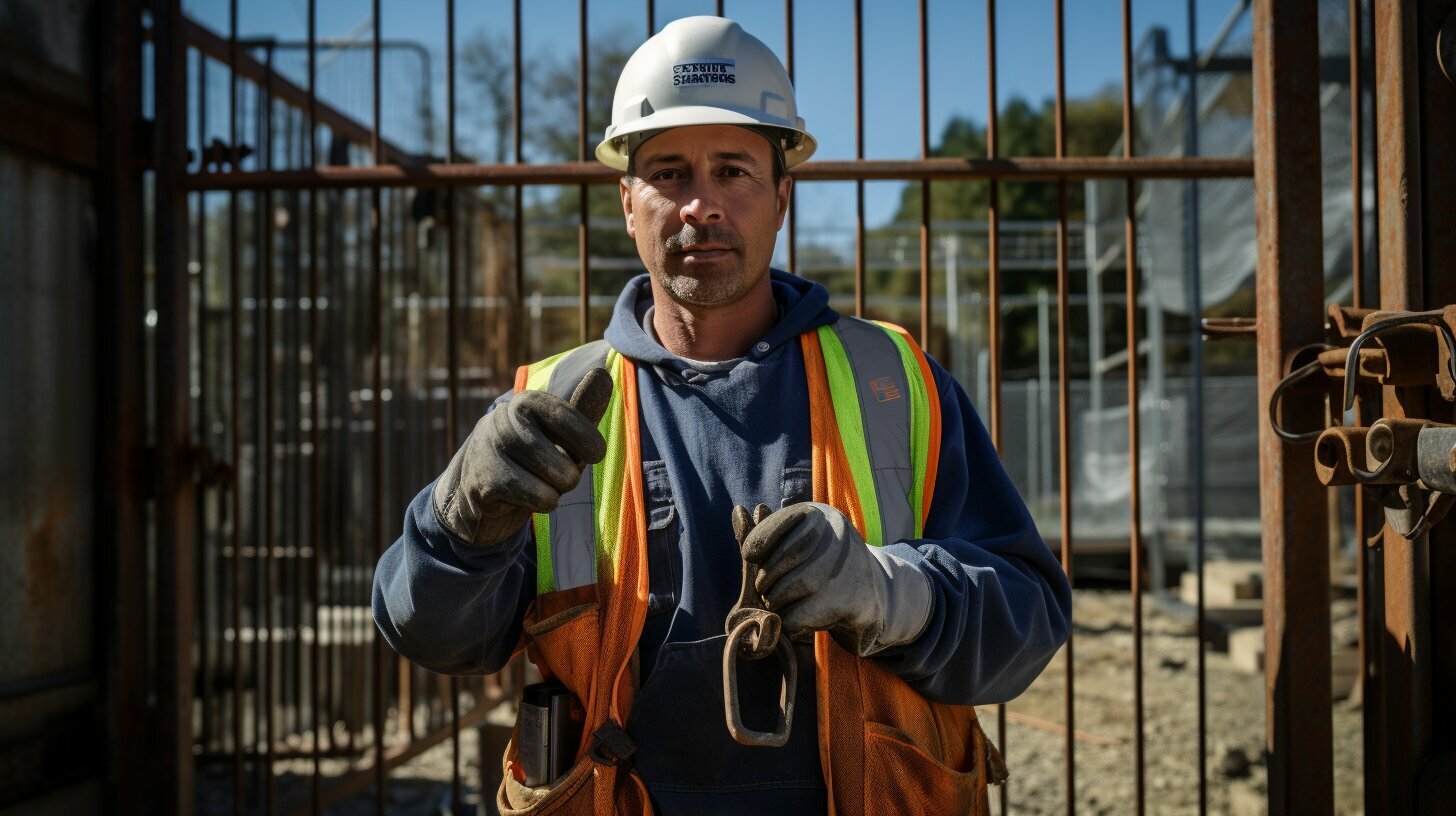
Acquiring a general contractor license involves a multi-step journey that can be both challenging and rewarding. The process varies depending on the state, but generally requires several years of experience. However, there are alternative ways to obtain a license without experience, such as partnering with a licensed contractor, obtaining a licensing board waiver, or using other types of relevant experience. The difficulty of obtaining a license depends on the type of license sought, with general contractor licenses typically requiring more experience and passing multiple exams. While the process may be rigorous, it aims to ensure that contractors have the necessary skills and knowledge to meet building codes and protect consumer interests.
Key Takeaways:
- Acquiring a general contractor license can be a complex process with varying requirements by state.
- Several years of experience are typically required, but alternative pathways exist for those without experience.
- The difficulty of obtaining a license depends on the type of license sought, with general contractor licenses generally requiring more experience and passing multiple exams.
- The licensing process aims to ensure contractors have the necessary skills and knowledge to meet building codes and protect consumer interests.
- Careful contractor selection and due diligence are essential, as licensed contractors may still perform poorly.
Understanding General Contractor License Requirements
Before embarking on the path to becoming a general contractor, it is crucial to understand the specific requirements set forth by each state. Getting a general contractor license can be a complex process that varies depending on the state in which you plan to work. In California, for example, many states require several years of experience to obtain a general contractor license.
However, there are alternative ways to get a license without experience. One option is to partner with a licensed contractor who will act as a qualifier for your business. This means that the licensed contractor will be responsible for overseeing your work and ensuring that it meets the required standards. Another option is to obtain a licensing board waiver, which allows you to bypass certain experience requirements if you can demonstrate other types of experience, such as construction classes or military service.
The difficulty of obtaining a general contractor license also depends on the type of license you are seeking. Generally, general contractor licenses require more experience and may involve passing multiple exams. These exams are designed to test your knowledge of construction practices, building codes, and safety regulations. The licensing process helps ensure that contractors have the necessary skills and knowledge to meet building codes and protect consumer interests.
Example Table: General Contractor License Requirements by State
| State | Years of Experience Required | Exam(s) Required |
|---|---|---|
| California | 4 years | Trade and law exams |
| Texas | 5 years | Trade exam |
| Florida | 4 years | Trade and business/law exams |
It is important to note that while having a general contractor license can provide credibility and demonstrate your qualifications to potential clients, it does not guarantee quality work. There have been cases where licensed contractors have performed poorly, underscoring the need for careful contractor selection and due diligence. It is essential to research contractors, check references, and review past work before entering into any agreements.
In conclusion, the process of obtaining a general contractor license can be rigorous, but with the right training and experience, it is achievable. Understanding the specific requirements in your state and exploring alternative pathways can help you navigate the process more effectively. By meeting the necessary requirements and demonstrating your knowledge and skills, you can work towards establishing yourself as a licensed general contractor in your chosen state.
Navigating the General Contractor License Process
The general contractor license process involves various stages, each requiring careful navigation and attention to detail. It is important to understand the specific requirements set by your state’s licensing board and follow the necessary steps to ensure a smooth and successful application. Here is an overview of the key stages involved in obtaining a general contractor license:
- Research: Begin by researching the licensing requirements in your state. Look for information on the necessary experience, education, and exams that you need to fulfill. This will help you understand the specific qualifications you need to meet.
- Application: Once you have a clear understanding of the requirements, you can begin the application process. Gather all the necessary documentation, such as proof of experience, education certificates, and any other relevant paperwork. Pay close attention to the instructions provided by the licensing board to ensure that your application is complete and accurate.
- Exams and Interviews: In many cases, obtaining a general contractor license involves passing exams or interviews to assess your knowledge and skills. Prepare diligently for these assessments by studying the required materials and practicing sample questions. Be sure to arrive at the designated time and location prepared and confident.
- Licensing Board Review: After completing the necessary exams and interviews, your application will be reviewed by the licensing board. This review process may take some time, so be patient. The board will evaluate your qualifications and determine whether you meet the necessary standards to be granted a general contractor license.
Keep in mind that this process may vary depending on your state’s regulations. It is essential to stay updated on any changes in licensing requirements and procedures. Seek guidance from experienced professionals or consult with organizations that specialize in contractor licensing to ensure you are on the right track. By navigating the general contractor license process carefully, you can increase your chances of obtaining the license and building a successful career in the construction industry.
| Stage | Description |
|---|---|
| Research | Gather information on state-specific requirements and qualifications. |
| Application | Complete and submit the necessary documentation to the licensing board. |
| Exams and Interviews | Prepare for and successfully pass the required exams and interviews. |
| Licensing Board Review | Wait for the licensing board to review and approve your application. |
Assessing the Difficulty of Obtaining a General Contractor License
Earning a general contractor license is often regarded as a challenging endeavor that demands dedication and expertise. The process can vary depending on the state, with each state having its own specific requirements and regulations. In California, for example, obtaining a general contractor license typically requires several years of experience in the construction industry.
However, for those without the necessary experience, there are alternative pathways to obtaining a license. One option is to partner with a licensed contractor who can provide guidance and mentorship. This allows aspiring contractors to gain the required experience under the supervision of a qualified professional.
Additionally, some states offer licensing board waivers for individuals who have relevant experience but may not meet the traditional requirements. This could include individuals who have taken construction classes, served in the military with construction-related duties, or have other forms of relevant experience.
Obtaining a general contractor license is not just about meeting experience requirements. It also involves passing multiple exams that assess both theoretical knowledge and practical skills. The difficulty of these exams can vary depending on the type of license being sought, with general contractor licenses usually requiring more comprehensive knowledge and expertise.
While the licensing process aims to ensure that contractors have the necessary skills to meet building codes and protect consumer interests, it is important to note that a license does not guarantee a contractor’s performance. There have been cases where licensed contractors have performed poorly, underscoring the need for careful contractor selection and due diligence by consumers.
Overall, while obtaining a general contractor license may present challenges, it is possible to achieve with the right training, experience, and dedication. The process serves as a means to establish the qualifications of contractors and ensure they possess the necessary skills to perform construction work safely and efficiently.
The Importance of General Contractor License Experience
Experience plays a crucial role in the journey towards a general contractor license, serving as a foundation for developing the necessary skills and expertise. Obtaining a license requires a certain level of experience in the construction industry, as this ensures that contractors have the knowledge and expertise to meet building codes and regulations. It also helps protect consumer interests by ensuring that contractors have a proven track record of delivering quality work.
For aspiring general contractors, experience can be gained through various avenues. Many states, like California, require several years of experience in the industry before granting a license. This experience can be obtained by working as a construction professional, either as an employee or as a self-employed contractor. It provides invaluable hands-on experience and a deep understanding of the construction process, project management, and compliance with industry standards.
However, for those without the required years of experience, there are alternative pathways to obtaining a general contractor license. One option is to partner with a licensed contractor who can serve as a mentor and sponsor. This allows individuals to gain the necessary experience under the guidance of an experienced professional. Another option is to obtain a licensing board waiver, which may be granted if the applicant can demonstrate equivalent experience or qualifications in related fields, such as construction classes or military service.
While experience is vital, it is important to note that having a general contractor license does not guarantee excellence. There have been cases where licensed contractors have performed poorly, emphasizing the need for careful contractor selection and due diligence. It is essential to thoroughly research contractors, check references, and review past work before entering into any agreements. Ultimately, the combination of experience, qualifications, and due diligence can help aspiring general contractors navigate the licensing process and build successful careers in the construction industry.
| Benefits of Experience | Alternative Pathways | Due Diligence |
|---|---|---|
| Develops necessary skills and expertise | Partnering with a licensed contractor | Thoroughly researching contractors |
| Ensures compliance with building codes | Obtaining licensing board waivers | Checking references |
| Protects consumer interests | Other types of experience (construction classes, military service) | Reviewing past work |
General Contractor License Exams and Qualifications
To ensure competence and adherence to building codes, general contractor license applicants often undergo rigorous exams and qualifications assessments. These exams are designed to test the applicant’s knowledge and understanding of construction principles, building codes, project management, and safety regulations. The specific exams required may vary depending on the state and the type of general contractor license being sought.
In addition to written exams, applicants may also be required to demonstrate their practical skills through a hands-on assessment. This may involve completing a construction project or demonstrating proficiency in specific trade skills. These practical assessments aim to ensure that licensed contractors have the necessary experience and capabilities to successfully manage and execute construction projects.
Qualifications for a general contractor license can vary depending on the state and licensing board. Typically, applicants are required to provide proof of their education, experience, and financial stability. This may include submitting transcripts, documenting work experience, and providing financial statements. Some states may also require applicants to provide references from clients or employers to verify their competence and professionalism in the field.
| Key Points: |
|---|
| General contractor license exams assess knowledge of construction principles, building codes, project management, and safety regulations. |
| Practical assessments may be required to demonstrate hands-on skills and proficiency in specific trade areas. |
| Qualifications for a general contractor license often require proof of education, experience, and financial stability. |
Obtaining a general contractor license is not an easy feat, but it is achievable with the right preparation and dedication. Prospective contractors should carefully review the requirements and regulations set by their state’s licensing board, as these can vary significantly. Some states may offer study materials or preparation courses to help applicants succeed in the exams. Additionally, networking with experienced contractors and seeking mentorship can provide valuable guidance and insights into the licensing process. By meeting the necessary qualifications and successfully passing the exams, individuals can obtain a general contractor license and embark on a rewarding career in the construction industry.
Conclusion
Becoming a general contractor involves a series of steps, from understanding the requirements to navigating the licensing process, but with the right knowledge, experience, and dedication, obtaining a general contractor license is an achievable goal.
In many states, including California, acquiring a general contractor license typically requires several years of experience. However, there are alternative pathways for those without experience, such as partnering with a licensed contractor, obtaining a licensing board waiver, or utilizing other types of relevant experience, such as construction classes or military service.
The difficulty of obtaining a license depends on the type of license sought, with general contractor licenses generally requiring more experience and the successful completion of multiple exams. Through this process, licensing boards aim to ensure that contractors possess the necessary skills and knowledge to comply with building codes and protect consumer interests.
It is important to note that while the licensing process helps maintain industry standards, there have been instances where licensed contractors have not performed up to par. This highlights the need for careful contractor selection and due diligence by consumers.
Overall, while the process may be rigorous, obtaining a general contractor license is possible with the right training and experience. By understanding the requirements, navigating the application process, and acquiring the necessary qualifications, aspiring contractors can embark on a successful journey towards obtaining their general contractor license.
FAQ
What are the general contractor license requirements?
The general contractor license requirements vary depending on the state. However, many states require several years of experience in the construction industry.
Can I get a general contractor license without experience?
Yes, there are alternative ways to obtain a general contractor license without experience. These include partnering with a licensed contractor, obtaining a licensing board waiver, or using other types of experience like construction classes or military service.
How difficult is it to get a general contractor license?
The difficulty of obtaining a general contractor license depends on the type of license sought. Generally, it requires a significant amount of experience and passing multiple exams.
What is the purpose of the general contractor licensing process?
The general contractor licensing process helps ensure that contractors have the necessary skills and knowledge to meet building codes and protect consumer interests.
Are all licensed contractors reliable?
While the licensing process aims to ensure contractor competence, there have been cases where licensed contractors have performed poorly. It is important to exercise caution and conduct due diligence when selecting a contractor.
Is it possible to obtain a general contractor license with the right training and experience?
Yes, with the right training and experience, it is possible to obtain a general contractor license. The process may be rigorous, but it is achievable.
continue reading
Related Posts
Obtaining a general contractor license is a crucial step towards
A general contractor plays a crucial role in construction projects,
A general contractor plays a crucial role in the successful




